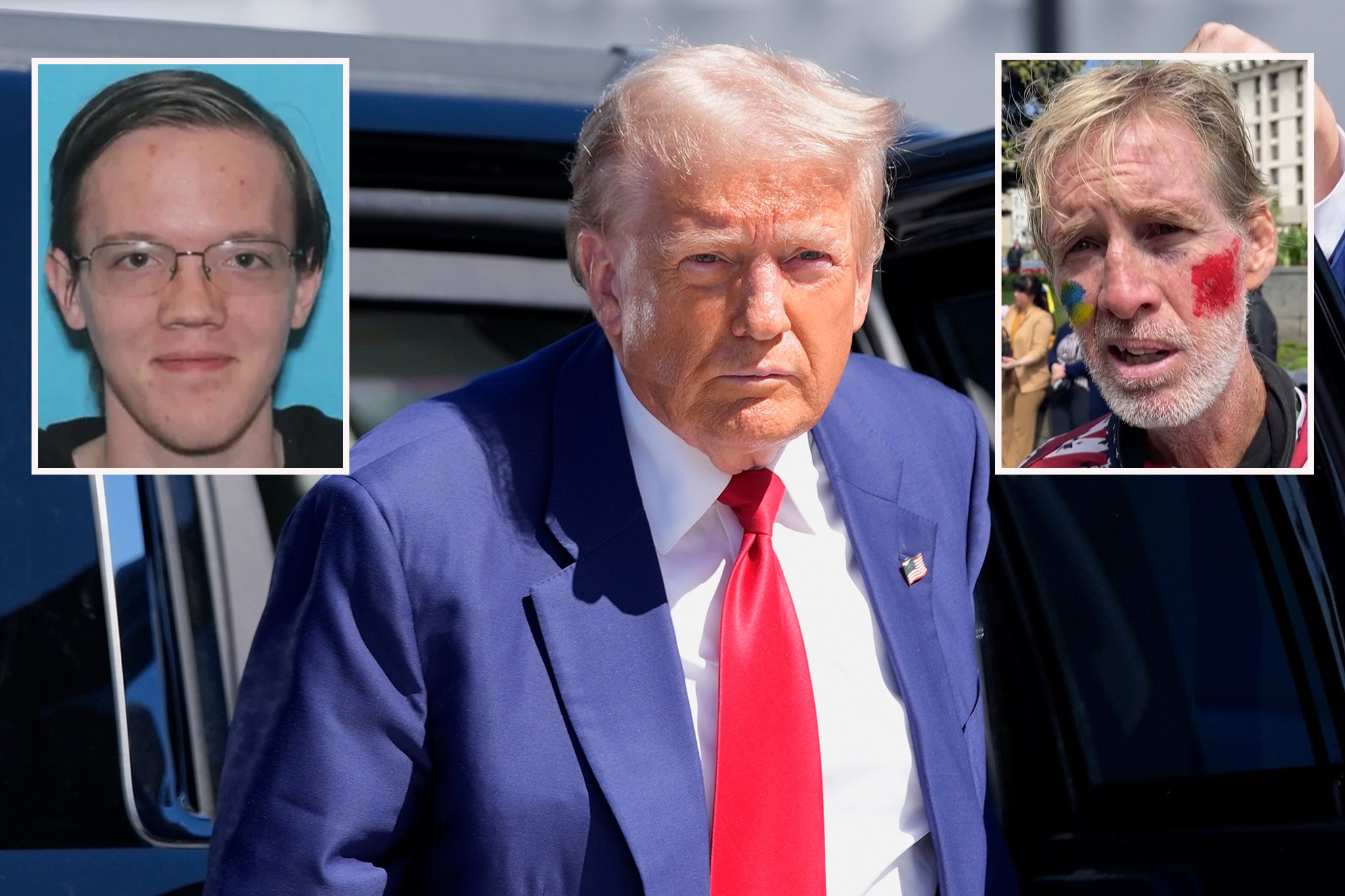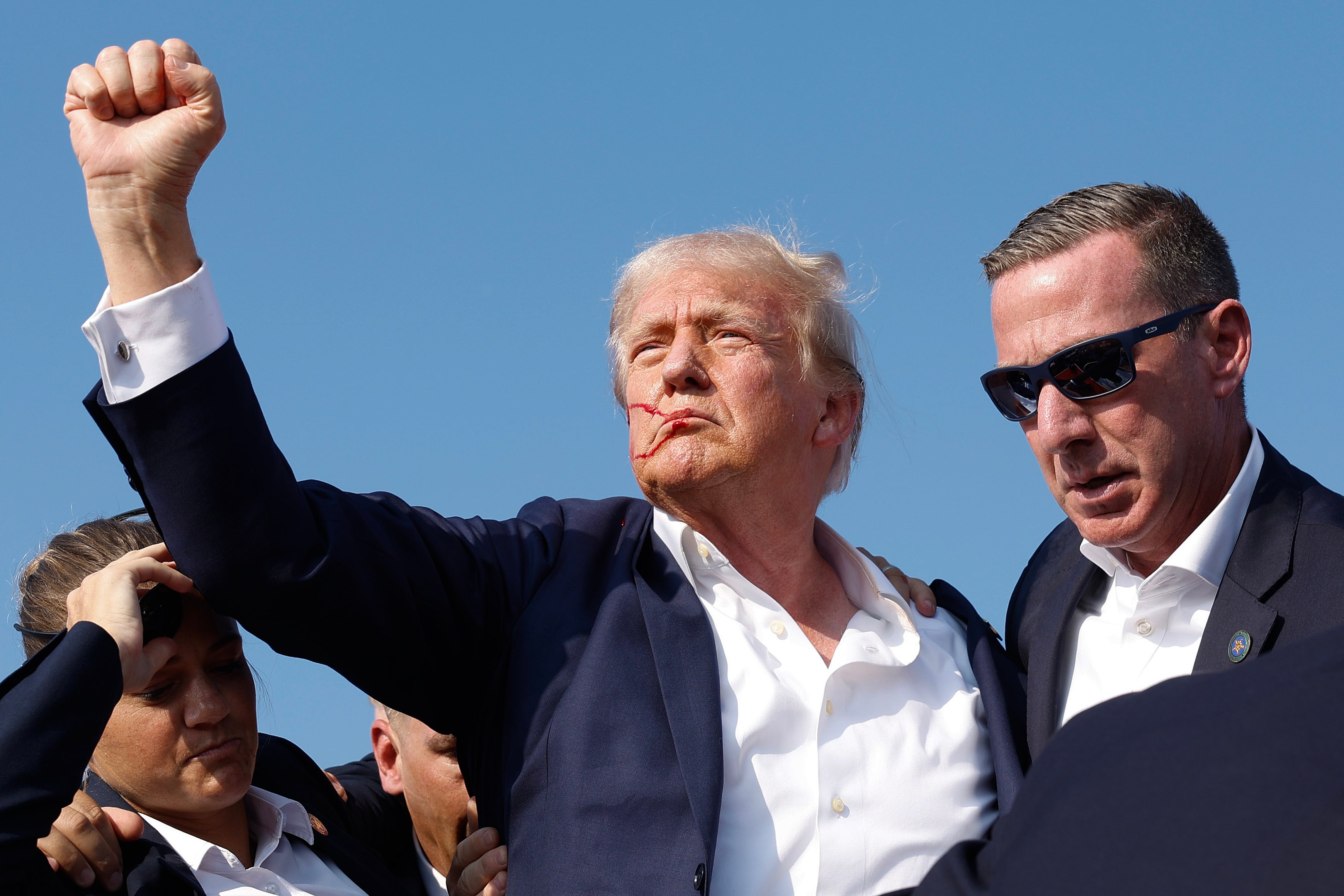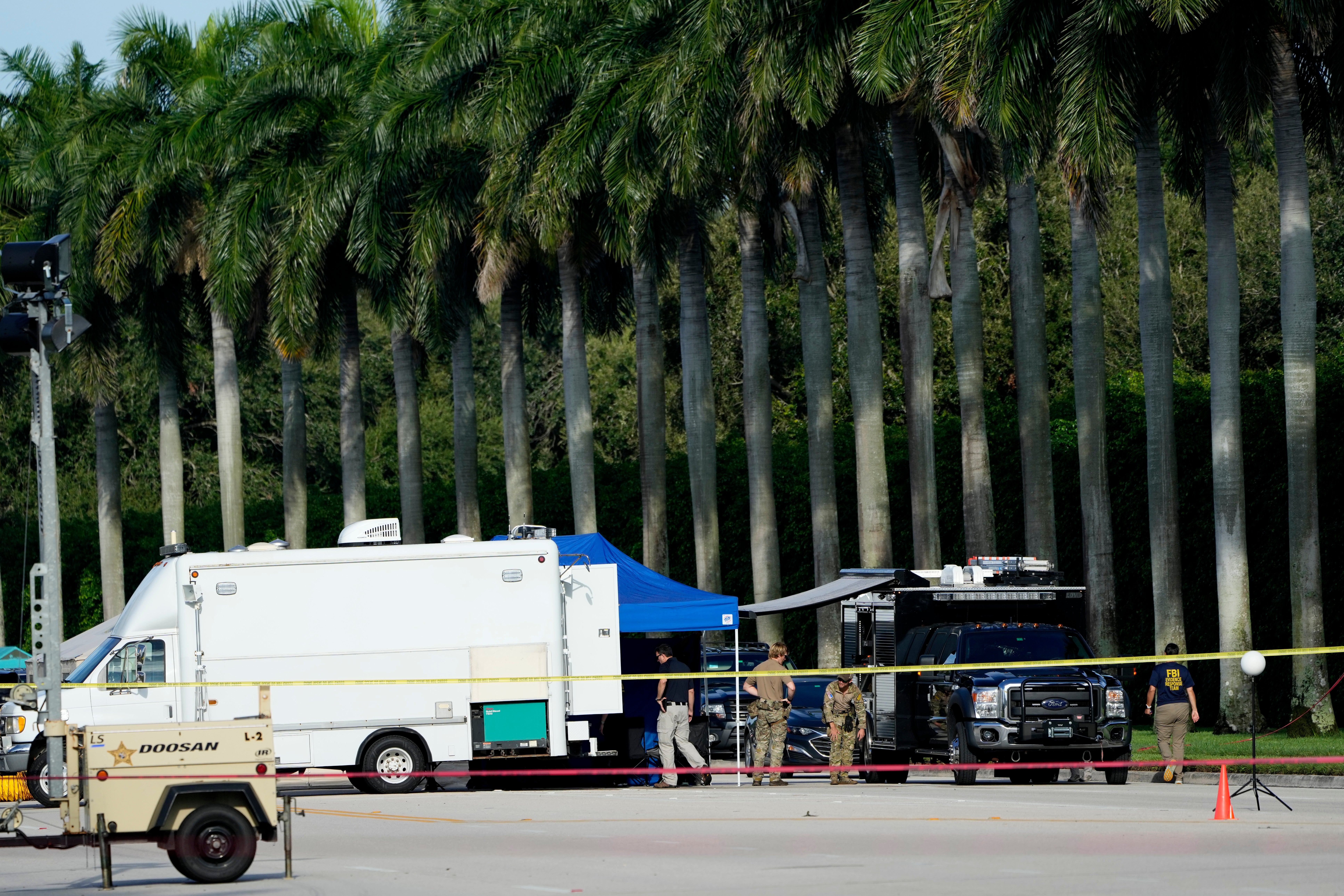‘We live in dangerous times’: Two Trump assassination attempts in two months reveals landscape of political violence
The two assassination attempts on Donald Trump’s life – just 64 days apart – reveal a landscape of political violence in what has become a vicious and, at times, dark presidential campaign. Rhian Lubin reports


With two assassination attempts on a presidential candidate in two months, the Secret Service spokesperson standing at the podium in West Palm Beach, Florida, summarized it best: “We live in dangerous times.”
The attempts on Donald Trump’s life – just 64 days apart – shine a light on the current landscape of political violence during what has become a vicious and, at times dark, presidential campaign.
First came the near miss at a campaign rally in Butler, Pennsylvania, on July 13 when Trump was clipped on the ear by a bullet fired by 20-year-old Thomas Matthew Crooks. With blood streaming down his face, it was a moment of defiance for the Trump campaign as the former president pumped his fist into the air and shouted: “Fight, fight, fight!”
This time, on September 15, Trump was playing golf at his West Palm Beach club when suspected gunman, Ryan Routh, aimed an SKS-style rifle through the bushes round the course perimeter. The alleged attack was foiled when a Secret Service agent spotted the barrel of the gun sticking out and quickly leapt into action, authorities said.
History is stained with the blood of four presidents – Abraham Lincoln, James Garfield, William McKinley and John F Kennedy – all of who were assassinated while in office.
Theodore Roosevelt survived an assassination attempt three years after he left office, while Ronald Reagan was seriously wounded by a would-be assassin in 1981 as an incumbent.
There were two attempts on Gerald Ford’s life in the same month – September 1975 – while he was president.

But two assassination attempts on a former president in such a short space of time in today’s world has set off several alarm bells – and raised questions as to what may have gone wrong.
At Sunday afternoon’s press conference, Sheriff Ric Bradshaw was asked an important question: “How was this able to happen?”
“He’s not the sitting president,” came the blunt response. “If he was, we would’ve had the entire golf course surrounded. But because he’s not, security is limited to areas the Secret Service deems possible.”
Bradshaw added how simple it was for someone to go undetected on the course. “You gotta understand the golf course is surrounded by shrubbery. When someone gets into the shrubbery, they’re pretty much out of sight,” he said.
“I would imagine the next time he comes to the golf course, there’ll probably be a little more people around the perimeter.”
Acting US Secret Service director Ronald Rowe, who replaced Kimberly Cheatle after the fiasco in Butler, has said he will be in Florida to oversee the investigation for as long as it takes, having already arrived on the scene to review the golf course and the suspect’s movements.
In July, serious questions were asked after 20-year-old Crooks managed to take a shot at Trump in Butler. Crooks, who left one rallygoer dead and two others wounded, was shot dead by a Secret Service sniper.

Cheatle resigned over the bungled response.
The next month in North Carolina, Trump appeared behind bulletproof glass when he attended his first outdoor rally since that first assassination attempt. Security was noticeably ramped up, with protective snipers spotted at the event.
Yet, though this time no one was harmed, history does appear to have quickly repeated itself.
On Sunday, following a weekend on the campaign trail, the Republican presidential nominee was on the fifth hole at Trump International Golf Club with some of his entourage, including his golf partner Steve Witkoff.
Suddenly there was a “pop, pop, pop, pop” sound, thought to be from the Secret Service firing towards the suspect after spotting the gun, according to Fox News host Sean Hannity.
Within seconds, Secret Service agents “pounced” on Trump and “covered him” to protect him, Witkoff reportedly told Hannity. Within moments, Trump was whisked away to safety via a “fast cart” with steel reinforcement.
Authorities received the call reporting shots fired at the golf club at approximately 1.30pm. This time, Trump was safe and unharmed, authorities said.
Vice President Kamala Harris has since said the government “will ensure the Secret Service has every resource, capability, and protective measure necessary”, while President Joe Biden admitted today “the Secret Service needs more help.”
So what might that look like?

Former Secret Service members have speculated on what could happen in the wake of the two serious attempts on Trump’s life.
Robert McDonald raised the risk of “copycat” attacks. “Is someone going to get a tiny bit closer,” he told the BBC. “Is somebody going to have another high-powered rifle and is somebody going to be able to inflict some serious damage?"
Barry Donadio told the broadcaster the Secret Service will “now have to re-evaluate”. He said: “Should all these candidates get the same presidential protective package? I think that’s probably going to have to be the answer.”
With only 49 days to go until November’s election, tensions on both sides are high after a summer of political violence. Both campaigns have pointed the finger, accusing one another of using “inflammatory” language, and both campaigns have got personal.
Political discourse on social media has also turned violent, with Elon Musk being accused of fanning the flames by questioning to his near 200 million X followers why “no one is trying to assassinate Biden or Kamala.”
Trump’s son Eric reacted to the news of the second assassination attempt on Sunday by asking: “My father is running out of lives here. How many more rifles are going to come within assassination distance of my father?”
His question echoes the sentiment of the Secret Service spokesperson at Sunday’s press conference: that we do, indeed, live in dangerous times.
Bookmark popover
Removed from bookmarks